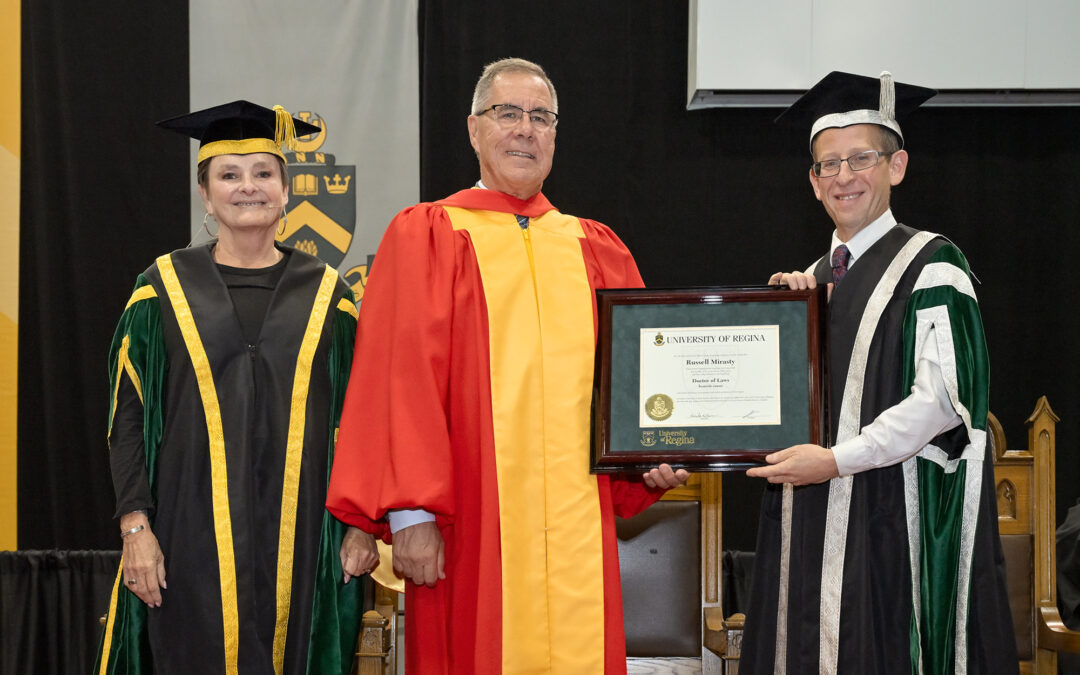Photo: University of Regina has awarded the Honourable Russ Mirasty an honorary Doctor of Laws honoris causa at Spring 2025 Convocation / University of Regina Photography
By Lori Deets
MBC News Freelance Correspondent
First Nations University of Canada
The University of Regina has awarded the Honourable Russ Mirasty an honorary Doctor of Laws honoris causa (LLD) during its Spring 2025 Convocation.
Mirasty, Saskatchewan’s first Indigenous Lieutenant Governor and a former RCMP commanding officer, reflected on the honor in a recent interview with MBC Radio. He shared thoughts on the recognition, his long career in public service, and what continues to drive his commitment to community.
“There was no forewarning, there was nobody hinting that I was being considered for this honor. And so it was a complete surprise. And really, I was taken aback,” he said, recalling the unexpected phone call from the University President and Chancellor.
He described the convocation experience as surreal—being on stage with graduates, learners, and educators.
“It was, quite frankly, awe inspiring, the feeling I had being with all of these people that are so highly educated.”
Mirasty served a 36-year career with the RCMP and was the first Indigenous commanding officer. He said he realized early on that he could make a difference.
“I learned early on that I could contribute in a very positive way to our communities. And so that stayed with me throughout 36 years. I felt strongly about that, that each of us can contribute in our own way.”
He also credits his wife, Donna, who has supported him throughout his journey.
“We use the words public service, but it’s really about contributing to your own community.”
Raised by his grandparents—who neither attended school nor spoke English—Mirasty says the values they passed on continue to guide him today.
“They really instilled a lot of values within me and others in our household. And I still live by those, and those include being respectful of everybody that you work with or encounter with, sharing or being welcoming and really, by extension, you know, you help individuals.”
For those looking to make a difference, Mirasty stresses the importance of involvement and difficult dialogue.
“If you don’t step into that difficult conversation and engage, then it will remain the same or it will be something you’ll just have to accept. So please have a look at it.”
He encourages Indigenous youth and others to consider careers in public service or governance at any level.
Now back at home in La Ronge, Mirasty is taking time to rest—but not retire.
“I don’t feel that I’m ready for just totally stopping work. I think I still have something left to contribute to our communities.”
